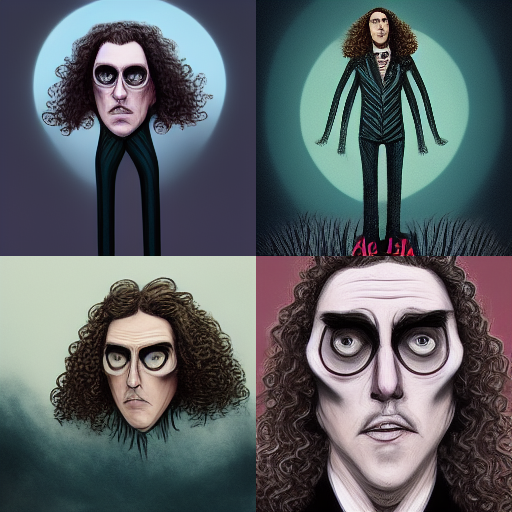AI Architects
In 2022, I noticed the following trends in architecture topics on Reddit, Facebook, Twitter, etc…
Have you heard about <insert AI of the month> ? It’s really awesome! Look at these flashy renderings I made of buildings that make no sense by typing a few cliche architectural keywords!
What are your thoughts on AI? When will the architecture profession be totally replaced by <insert AI of the month> ???
Though it has slowed down as more people have become aware of it, it seemed like there was a new thread just about every day that wanted to frame these AI image generators as either the most amazing thing for design professions or as the single thing that would eliminate the professions altogether. Usually the comments would settle somewhere in the middle as it becoming a tool for inspiration and quick concepts.
I’m not the most ahead-of-the-curve person, but I was aboard the AI image generator train a bit before these threads overwhelmed the digital social spaces I lurk in. I joined up in early 2022 after waiting a while for a beta invite for Midjourney. When I first jumped in, I was absolutely amazed by the possibilities. I didn’t even really know where to begin and would just watch other people play.
/imagine Donald Trump as a Muppet
/imagine Joe Biden except his skin is made of cheese
/imagine Weird Al in the style of Tim Burton
The usual.
It didn’t take long (maybe 15 minutes) to see people playing with landscapes, cities, and buildings to realize that beyond the random fun depictions of humanized cheese, I could quite possibly use this thing as a design tool. So I did. I played around with a lot of prompts that involved architectural styles, famous architects, perspectives, program requirements, sites, etc. I had a lot of fun and made some interesting images that felt impressive at the time. But they were overall meaningless drawings and I got bored with it and moved on.
Over the rest of the year, I observed threads and participated in some too. I’ve thought a lot about AI myself, talked about it in person with friends, and have listened to brilliant minds like Brett Weinstein, Elon Musk, or guests of Lex Fridman talk about it. I’ll be honest—I’m very conflicted. I have both optimistic and pessimistic ideas about where AI can and will take our humanity. But on the whole, I stopped paying attention to the threads and got sick of the topic. Midjourney.
Until recently.
So I’ve seen a trend by some of my friends, peers, and colleagues. They shall remain anonymous and unknown as this post isn’t meant to be personal. But over the past month or two, it would seem that some have discovered Midjourney and were very impressed with the results. As mentioned above from my own experience, most people upon finding out about AI image generators jump to social media to share and make the post about the AI tech itself. The trend I’ve noticed, however, is that a group of people must now be feeling the results are indistinguishable from human-generated work and can pass as something that came from their own intelligences. I’m observing people posting the images on all the social networks and taking credit for generating them. No signs of AI even in the hashtags. Nobody (including myself) with the guts to mention it in the comments either. It’s awkward.
Now, you might be wondering: what if it wasn’t AI after all? No, it was. At least when it comes to Midjourney, there are 3 giveaways that I have observed.
The style. A bit subjective, but once you’ve seen thousands of AI architectural images that are all being created from the same source material, your brain can just identify it.
The function. AI architecture often doesn’t really “work”. Sure, it has all the basic requirements for a building (doors, windows, roofs, etc) but they often don’t actually “work”. Too many chimneys. Poorly placed openings. Columns that make no sense. Etc. Stuff that an actual architect would cringe at and not actually model and render (hopefully).
Text. Midjourney can’t do text. It reads almost like how the parents from Charlie Brown talk. One of the images posted contained text. Dead giveaway.
Some examples of AI “Architecture” I’ve generated.
So what’s the point?
While many are afraid of AI taking the humanity of humans, I’m concerned about humans willingly giving it away. I found it alarming and concerning to see fellow designers be so impressed by the creation of an AI Bot that the instinct was to cheapen their own abilities (and our shared profession as a whole) for some positive comments and likes.
As the internet exploded and cell phones became pocket computers, humans were so enamored and impressed (myself very much included) that we were pretty willing to give away our privacy and data to have access to tools and media that provide both utility and depression at the same time. Before we set rules and really understood the ramifications of emerging experiments, we wrote blank checks and went all in.
AI will continue to improve at an incredible rate. Midjourney will figure out text and will eventually make buildings that could be… well… built. Eventually my peers will be able to post these images and I won’t be able to tell the difference. I have no doubts about that. But before we go all in on AI—because it’s truly a much larger conversation than image generation—I think it is crucial to know what piece of ourselves it requires giving up.
One of my favorite video games is Final Fantasy X. The game’s bad guy is a creature named Sin. While the plot is very complicated, I think there’s something compelling worth considering about its origins…
Long time ago, there were a whole lot of cities in Spira. Big cities with machina-machines-to run 'em. People played all day and let the machina do the work. And then, well, take a look. Sin came, and destroyed the machina cities. And Zanarkand along with 'em. Yeah, that was about a thousand years ago, just like you said. If you asked me, Sin's our punishment for letting things get out of hand.
While I’m no expert on artificial intelligence and largely rely on others who are to form my ideas and opinions on the technology itself, I do have a basic understanding of the human condition and its desire for purpose and meaning. I think work can be a great source of that. And I do think there’s room for AI to reduce the redundant, inefficient, and monotonous aspects of work that can take away from the most meaningful aspects of life such as family and friends. I believe the key will be finding a way to primarily take from artificial intelligence rather than giving anything of ourselves to it.











